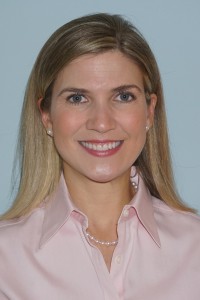Margaret Quinlan, University of North Carolina Charlotte – New Mother Challenges
 New mothers face age-old challenges, and decidedly modern ones as well.
New mothers face age-old challenges, and decidedly modern ones as well.
Margaret Quinlan, associate professor of communication studies at the University of North Carolina at Charlotte, discusses these trials.
Margaret M. Quinlan (Ph.D., Ohio University) is an Associate Professor of Communication and a Core Faculty Member of the Interdisciplinary Health Psychology Ph.D. Program at the University of North Carolina at Charlotte. She received the Bonnie E. Cone Early Career Professorship in Teaching (2015-2018). She explores how communication creates, resists and transforms knowledges about bodies. She critiques power structures in order to empower individuals who are marginalized inside and outside of healthcare systems. Additionally, her scholarly work explores the organizing of health care resources and work opportunities for people with lived differences. She authored approximately 40 journal articles, 17 book chapters and co-produced documentaries in a regional Emmy award-winning series (National Distribution with PBS and available on Amazon).
Dr. Quinlan has published in Health Communication, Text & Performance Quarterly, Disability Studies Quarterly, Communication Education, Women & Language, Women’s Reproductive Health, Qualitative Research in Medicine and Healthcare, International Journal of Health and Media Research, Sexuality & Culture, Journal of Research in Special Education Needs, and Journal of Holistic Nursing.
She co-authored a book with Bethany Johnson: You’re doing it wrong! Mothering, media, and medical expertise with Rutgers University Press.
You’re Doing it Wrong! investigates the storied history of expertise around mothering in the media, from the newspapers, magazines, doctors’ records and personal papers of the nineteenth century to today’s websites, Facebook groups, and Instagram feeds. Johnson and Quinlan find surprising parallels between today’s mothering experts and their Victorian counterparts, but they also explore how social media has placed unprecedented pressures on new mothers wrestling with familiar concerns and crises from pre-conception through early toddlerhood.
New Mother Challenges
New mothers have faced many of the same health issues for generations, but the number of experts (lay, technical and other) is exponentially growing, particularly on social media. In our historical and qualitative research, Bethany Johnson and I explore health crises emergent from pre-conception through early toddlerhood. These crises may include fertility and conception challenges, premature birth, infant loss and postpartum health issues. We explore the shifting nature of expertise and the impact of its mediated dissemination on the mother-child dyad.
While immersing ourselves in the literature of our respective fields, we interviewed dozens of people, surveyed hundreds, gathered and coded thousands of social media posts, and collected archival materials from multiple locations. We found ideologies popular in the late 19th and early 20th century resurfacing on today’s social media platforms.
Even if our methods for soothing and treating babies have shifted (we no longer lance their gums for teething or give them “baby soothers” with opioids) our archival research illuminates the longevity of some parental worries (“why is my baby crying? Should my baby be rolling over?”).
Parents past and present grieve the loss of their babies and young children deeply. Some have treasured photographs taken, in which they appear as if they are asleep. While some social media platforms remove and then restore these images, they exist within a long tradition of memorializing loss.
We call for a re-examination of categorizations of medical expertise in the social media age, as well as a template for engaging on these platforms without increasing self-surveillance or reproducing and upholding unequal social hierarchies. While we witnessed some progress, we still have a long way to go.


